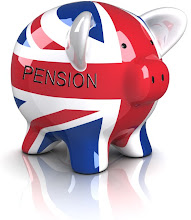The screws are tightening on the bank accounts of high net worth individuals, particularly those in the City. With effect from April, anyone earning more than £100,000 will see their personal tax allowances reduced, and those with an income of more than £150,000 will be taxed at a top rate of 50 per cent. Individual bonuses to bank workers of more than £25,000 paid before April, meanwhile, are subject to a 50 per cent levy paid by the bank; the employees also pay income tax on the money they receive.
So, who's leaving?
There's been talk of an exodus of high net worth individuals since the Chancellor first outlined his tax hike plans in last April's Budget. David Anderson of London law firm Sykes Anderson thinks the new regime "may be the last straw for high net worth individuals who have already been directly targeted by the changes to non-domicile taxation and the abolition of taper relief for capital gains tax (CGT) purposes."
However, Paddy Dring, head of the international residential department at property consultant Knight Frank, believes that only a relatively small number have actually left the country so far. "Others are making preparations but are waiting to see what happens over the coming year," he says.
"There are without doubt some who will leave London, but many are realising they have underestimated the complexities of going," adds Jonathan Hewlett, head of Savills' London office. "More and more, we are hearing about people who've looked at moving but can't find the right place to go - a place where their partner will be happy and there are good school choices. The young are more transient, however, and there is a perception that they will go wherever the good deals are."
Tax issues
Those complexities extend well beyond school choice. Paul Garwood, head of personal financial planning at London accountant Smith & Williamson, points out that HM Revenue & Customs (HMRC) has not been making it any easier to escape the UK tax system recently.
The test for residency (which governs the requirement to pay UK tax) used to be that if you were in the UK for more than 183 days in a tax year, or more than 90 days a year over a four-year period, then you were UK resident. But as Mr Garwood explains: "Now, if you haven't qualified for resident status in another country and you keep your UK home, they may just count you as UK resident anyway if you return at all, so you really need to plan carefully and burn your UK boats if you're serious about it."
That may well mean selling your home, rather than renting it out. It also means ensuring you spend enough time in your new jurisdiction to qualify as tax resident there. You can no longer work in Paris during the week but nip home to see your family in Britain at the weekends if you want to escape the UK tax regime.
The tougher regime is a particular problem for people trying to move directly to a tax haven such as Monaco, says Mr Anderson. "First, it is harder to prove you've left the UK for good, as the Revenue is far less likely to accept you are moving your life away from the UK," he explains. "Secondly, Monaco has no double tax treaty in place with the UK, so you could find you’re a dual resident for tax purposes, and therefore remain liable for UK income tax. (Double tax treaties contain a test to establish your residency for tax purposes in either one country or the other; dual residency is not possible.)
"It can be much simpler therefore to move to a country which has a more favourable regime than the UK but also has a double tax treaty with the UK, such as France," Mr Anderson suggests.
Pension planning
Apart from tax residency itself, you need to plan other tax-related aspects of your finances. Pensions are one key consideration. If you are in your employer's pension scheme, you will be able to remain in the scheme when you're working abroad for a maximum period of ten years; after that you may be able to negotiate a move into a local equivalent scheme.
If you are moving overseas indefinitely, you could consider transfer your UK pension into a Qualified Recognised Overseas Pension Scheme (QROPS) - an overseas pension scheme approved by HMRC. The advantage is that they are governed by the local tax rules, and these tend to be more flexible than the UK system. For example, you may not have to buy an annuity with the bulk of your fund; there may be less or no tax to pay on pension payments; or it may be possible to take the whole lot as a lump sum.
by:Faith Glasgow
http://www.investorschronicle.co.uk/InvestmentGuides/FinancialPlanning/article/20100208/b01de62e-125c-11df-bbca-0015171400aa/Time-to-move.jsp
Subscribe to:
Post Comments (Atom)





No comments:
Post a Comment